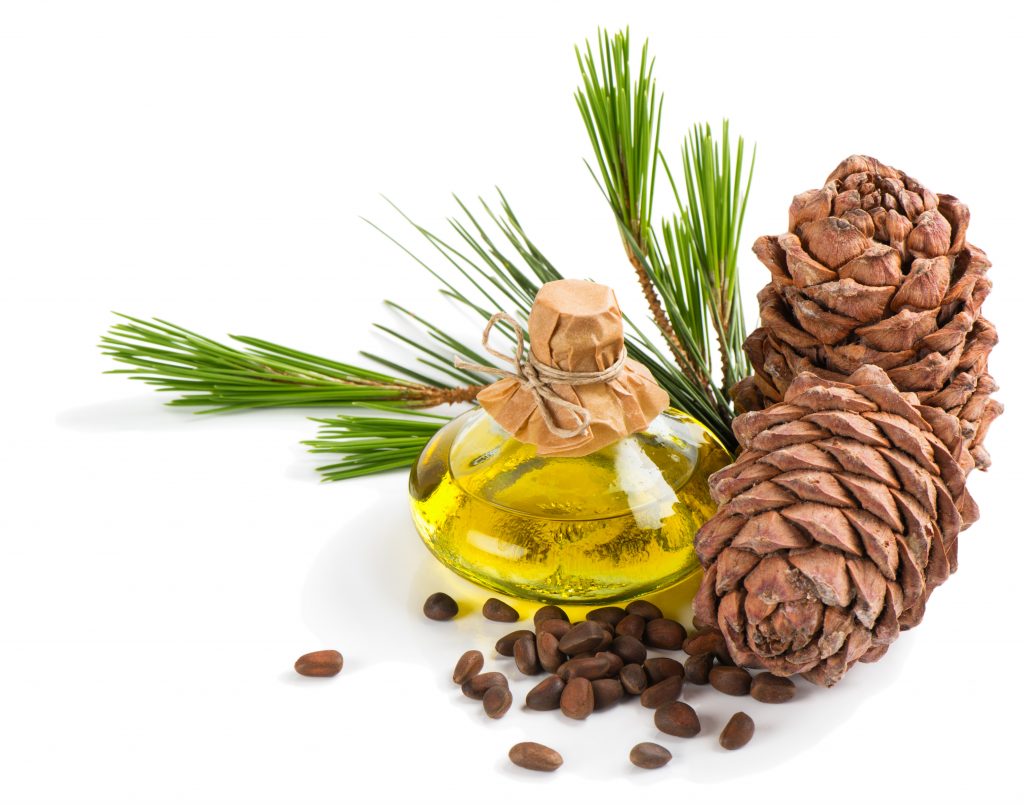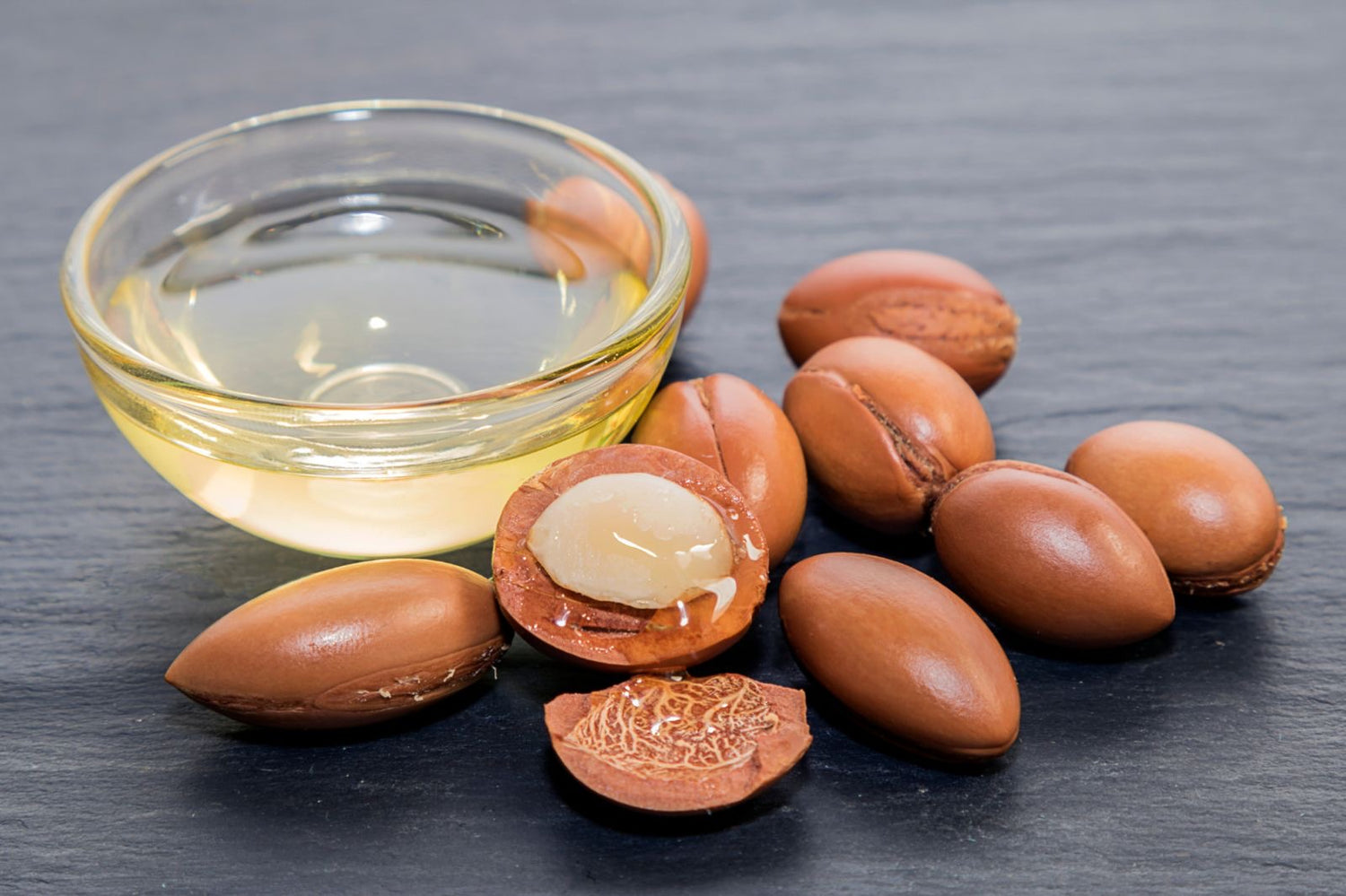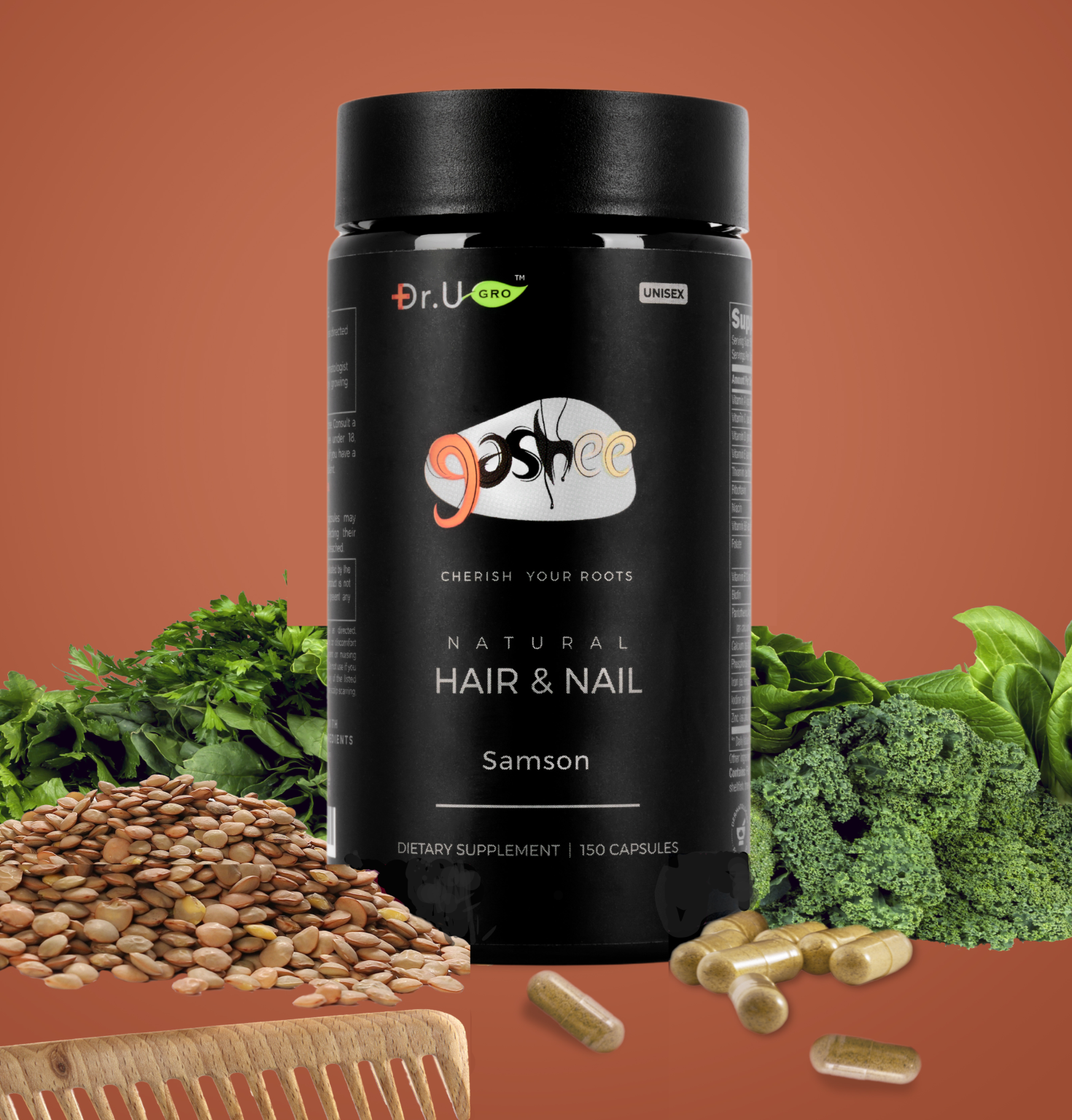What is Tall Oil?
Tall oil is also called “liquid rosin,” and "Pine Oil" a yellow liquid with a pungent odor. It is a by-product derived from the seeds, acorn, and wood pulps of pine trees.

This substance is used in other cosmetic products such as shampoos, shaving cream, and skin cleansers. According to a Gaia study, refining tall oil and manufacturing its products can greatly reduce carbon dioxide emissions. Scientists are also interested in the β-sitosterol component of tall oil for hair as a 5𝞪-reductase inhibitor in the treatment of androgenic induced alopecia (i.e. male pattern baldness) hair loss.
The Research on Tall Oil aka Pine Oil and Healthier Hair
The main pathway that contributes to pattern baldness is the breakdown of testosterone to DHT. The 5𝞪-reductase enzyme is responsible for this conversion. By blocking this enzyme, it is possible to slow down or stop the production of DHT. This potentially reduces the concentration of this byproduct in the bloodstream by as much as 80%.
Men who suffer from pattern baldness are born with genes that code for more sensitive androgen protein receptors on the hair follicle. DHT, which circulates throughout the bloodstream, will bind to these weak receptors. This causes the hair follicles to miniaturize and eventually stop growing hair.
One constituent of interest found in tall oil for hair is β-sitosterol, which is a plant sterol. Researchers are learning that it can function as a 5𝞪-reductase inhibitor. Also, they are discovering that it has the ability to lower cholesterol. Based on both these functions, β-sitosterol may even slow the synthesis of testosterone to further reduce the amount of DHT in the body.

Tall Oil Fatty Acid Constituents and β-sitosterol For Healthier Hair Follicles
The following hair beneficial components were cited:
- Fatty acids
- Oleic and linoleic acids
- β-sitosterol
Fatty acids, oleic and linoleic acids will not directly improve hair loss. But they can be used as enhancers to help improve the skin’s permeability to topically applied 5𝞪-reductase inhibitors. β-sitosterol is being studied by researchers for its ability to block the 5𝞪-reductase enzyme.
The safety assessment also specified that tall oil can be safely used in cosmetic products in concentrations no greater than 8%. Tall oil contains the essential fatty acids, oleic and linoleic acids, as well as β-sitosterol. All of these natural sources can be beneficial to hair growth. The oil can be used safely for cosmetic purposes in concentrations up to 8%.
Tall Oil For Hair and Lowering Cholesterol - Why This Matters For Hair Loss Sufferers
Through controlled research studies, scientists are finding that β-sitosterol found in tall oil is able to lower cholesterol levels. Researchers administered tall oil to subjects which resulted in a 10% reduction in serum cholesterol. β-sitosterol was believed to have been responsible for this effect.
Wang HX, Ng TB noted that β-sitosterol lowers cholesterol’s bioavailability in animal subjects. This implies that the compound may inhibit the biosynthesis of steroid hormones such as testosterone.
In other words, lowering testosterone may serve as another way to lower DHT levels in the blood.
The Research on Tall Oil’s β-sitosterol as a 5𝞪-reductase Inhibitor
Scientists found that β-sitosterol is one of the constituents found in a parasitic herb called Cuscuta Reflex. Researchers have taken note of this herb in the past for its hair growing abilities. In one study, they tested the effects of the Cuscuta Reflex on mice that had been treated with testosterone for 20 days to deliberately induce androgenic alopecia. The researchers then administered the plant extract to see if the mice grew hair. Based on data collected (in terms of skin sections, anagen/telogen ratio, and follicular density) they concluded that the hair growth observed was quite significant. Researchers attributed this phenomenon to the inhibition of the 5𝞪-reductase enzyme.
In a placebo-controlled, double-blind pilot study researchers tested β-sitosterol and liposterolic extract of Serenoa repens (LsESr) as two forms of plant-derived 5𝞪-reductase inhibitors. They combined both components into softgel capsules that included:
- 50 mg of β-sitosterol
- 200 mg of saw palmetto extract (85-95% liposterolic content)
The subjects of this study were males with mild to moderate androgenic alopecia, between the ages of 23-64. One group was asked to take a softgel (oral capsule) containing the β-sitosterol and saw palmetto twice a day. Another group was asked to take a placebo softgel twice a day.
In the final results, 60% of the subjects showed improvements in hair growth, according to staff assessments and patient self-assessments.
Can Tall Oil For Hair Stop Baldness?
The β-sitosterol component found in tall oil for hair may serve as a safe, natural inhibitor of the 5𝞪-reductase enzyme. Additionally, its ability to lower cholesterol may provide an additional mechanism for lowering DHT levels. This is done by reducing the production of testosterone. With these capabilities, the constituents of tall oil may offer a less toxic alternative to synthetic pharmaceutical drugs which block the 5𝞪-reductase enzyme. At the same time, they could incur the high risk of dangerous side effects in other parts of the body.
The research which supports these effects involves the use of animal models, as well as the oral administration of β-sitosterol. However, a closer examination of these conclusions is needed in the form of more studies on humans as well as topical preparations. Such research efforts should not only investigate the role of β-sitosterol in people. Rather, they should also look at the fatty acid constituents as skin penetrating agents.
Frequently Asked Questions - Tall Oil for Hair
Can tall oil rosin benefit hair health?
Rosin is simply a solid form of tall oil. Many products use it as a starting point for manufacturing. But solidified tall oil will not benefit hair follicles or hair strands.
What is tall oil as it pertains to holistic health and hair?
Tall oil can be a vegetarian substitute for tallow fatty acids in the production of lubricants and soaps. Some shampoos and skin cleansers also list tall oil as an ingredient. However, tall oil is not edible.
How might tall oil fatty acid help hair loss sufferers?
Researchers have found the fatty acids found in tall oil improve the skin’s receptivity to topical forms of 5𝞪-reductase inhibitors. This can help improve the potency of such compounds as they work to lower DHT concentrations in the bloodstream.
References
- Manosroi A, Ruksiriwanich W, Abe M, et al. Transfollicular enhancement of gel containing cationic niosomes loaded with unsaturated fatty acids in rice (Oryza sativa) bran semi-purified fraction. Eur J Pharm Biopharm 2012;81(2):303-13.
- Robinson, Bergeld WF, Belsito DV, et al. Amended safety assessment of tall oil acid, sodium tallate, potassium tallate, and ammonium tallate. Int J Toxicol 2009;28(6 Suppl 2): 252S-8S.
- Thompson GR. Plant lipids that lower serum cholesterol. Eur Heart J 1999;20(21):1527-9.
- Wang HX, Ng TB. Natural products with hypoglycemic, hypotensive, hypocholesterolemic, antiatherosclerotic and antithrombotic activities. Life Sci 1999;65:2663-77.
- Patel S, Sharma V, Chauhan NS, et al. An updated review on the parasitic herb of Cuscuta reflex Roxb. Zhong Xi Yi Jie He Xue Bao 2012;10(3):249-55.
- Pandit S, Chauhan NS, Dixit VK. Effect of Cuscuta reflexa Roxb on androgen-induced alopecia. J Cosmet Dermatol 2008;7(3):199-204.
- Prager N, Bickett K, French N, et al. A randomized, double-blind, placebo-controlled trial to determine the effectiveness of botanically derived inhibitors of 5-alpha-reductase in the treatment of androgenetic alopecia. J Altern Complement Med 2002;8(2):143-52.






